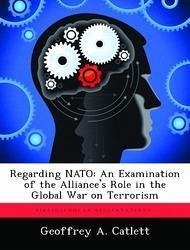Since September 11, 2001, the United States has struggled to define a strategy for waging the Global War on Terrorism. From a military perspective, clearly the Bush administration wished to prosecute the war as a series of offensive campaigns, fought far from the shores of the homeland, and designed to deny 'safe havens' for terrorist networks abroad. In pursuing this policy the administration eschewed 'entangling alliances', preferring to establish coalitions of utility based on the immediate operational needs of a specific campaign. After periods of initial success in Afghanistan and Iraq, generally defined as rapid and decisive combat operations, each campaign has degenerated into protracted counterinsurgencies, with no foreseeable end. U.S. resources are being stretched to the breaking point and potential allies have shown a marked reluctance to join the fight after the initiation of hostilities. In this monograph we examine the current and potential military roles of NATO in the Global War on Terrorism, and advocate a stronger, revitalized partnership between the U.S. and the Alliance. The U.S. clearly requires strong allies if it is to achieve it's stated policy goals of establishing stable, secure, and democratic states where none existed before. Since the end of the Cold War NATO itself has been under a process of transformation, seeking to redefine itself in the absence of expansionist socialism. In addition to its rapid expansion into Eastern Europe-a necessary step to fill the vacuum left after the collapse of communism-the Alliance is moving rapidly towards establishing itself a major factor in international security and stability in the 21st century. With a revamped command and control architecture, as well as smaller, more professional and deployable, and technologically interoperable forces, NATO is poised to take on the same global challenges facing the U.S. The Alliance is essentially a strong, valuable, and as yet underutilized partner, in the Glo
Hinweis: Dieser Artikel kann nur an eine deutsche Lieferadresse ausgeliefert werden.
Hinweis: Dieser Artikel kann nur an eine deutsche Lieferadresse ausgeliefert werden.








